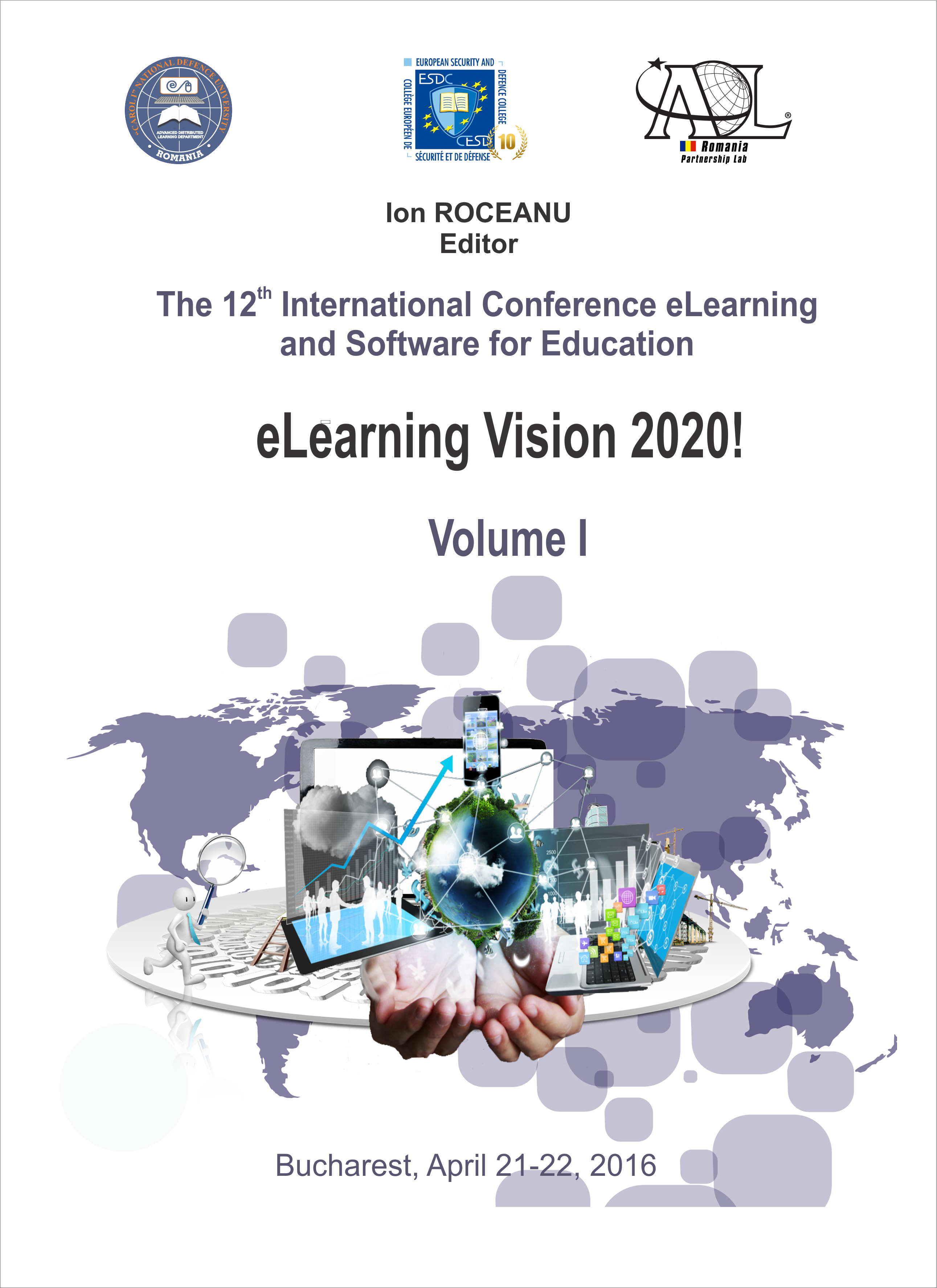NEW BIG DATA MODEL BASED ON SOCIAL LEARNING ENVIRONMENT USING ARTIFICIAL INTELLIGENCE
NEW BIG DATA MODEL BASED ON SOCIAL LEARNING ENVIRONMENT USING ARTIFICIAL INTELLIGENCE
Author(s): Marius Iulian MIHAILESCU, Ştefania Loredana Niţă, Valentin Corneliu PauSubject(s): Environmental interactions, ICT Information and Communications Technologies, Sociology of Education
Published by: Carol I National Defence University Publishing House
Keywords: big data; social learning; e-learning; artificial intelligence; web 5.0;
Summary/Abstract: Because of the advance of the new social computing technologies, known also as Web 5.0, we now face with new challenges for eLearning. We have the opportunity to leverage without limits an important amount of resources specific to learning, such as repositories, people with a huge desire for learning, professors, and so on. In order to have a complete functionality offered by different software and web applications, we have to integrate the right protocols and user interface. The paper will examine these new challenges and we will move to the next technology, which is big data. The advance will be done by including a new model, which will be applied in connection with artificial intelligence. The result of these combination is to generate different statistics and supervised learning algorithms, giving the possibility to design new mechanisms for participation and evaluation of the students and not only. These can be viewed as a type of instructional planning, which can be achieved on certain stages and quality process of the participation. Moreover, the paper provides an overview of the issues that can be triggered in the process of integration and designing. Somehow, the process of integrating different technologies, such as big data and artificial intelligence, could become the worst nightmare that could exist. Is very important to have the right environment, the education system necessities are increasing, and we have to keep the step with the evolution process, in order to give the best outputs and to adapt to them very fast. We have focused on different sectors and human environments, such as universities, government, high schools, etc.
Journal: Conference proceedings of »eLearning and Software for Education« (eLSE)
- Issue Year: 12/2016
- Issue No: 01
- Page Range: 428-435
- Page Count: 8
- Language: English

